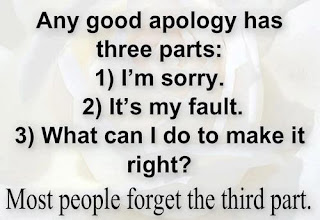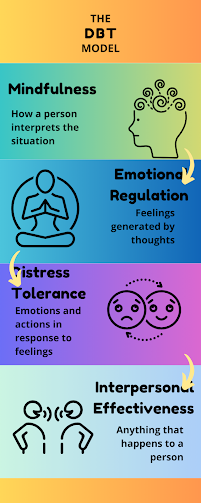"Sorry" Does Not Make It Better
 As I picked up my kindergartner from school today I asked if she had received a "good day" stamp on her thumb for the day. Once again she told me the reason she didn't get a stamp was because she was touching others. I asked her if she thought I should talk to her teacher. She said "yes" so we waited until her teacher was free.
As I picked up my kindergartner from school today I asked if she had received a "good day" stamp on her thumb for the day. Once again she told me the reason she didn't get a stamp was because she was touching others. I asked her if she thought I should talk to her teacher. She said "yes" so we waited until her teacher was free. Her teacher explained she did more than touch. She pushed someone who had stepped in line in front of her. When her teacher told her that was not acceptable, Lilly stomped off, with a loud "fine" and then started having a meltdown. Lilly was good about going to another area of the room to cool off, but her anger was centered on already having said she was sorry.
I explained that was typical for Lilly. She is a very highly emotional individual and has several meltdowns a day over seemingly little things or small frustrations. One of her beliefs is once she has said she is "sorry" then everything is OK. If she said she is sorry, then you aren't supposed to talk to her about what happened. If she said she is sorry, it doesn't matter if someone got hurt or why. As long as she says sorry, she shouldn't have to clean up the mess or pick up what she threw.
She learned the concept of trying to make the other person feel better if you hurt them. She has not yet learned the concept of taking responsibility for the actions or looking at how she can show she is sorry. She hasn't learned many of her actions have consequence or require work to repair or clean something.
So my challenge this week, among others, is to help Lilly and her sister understand that just saying "Sorry" doesn't make everything all better. It helps the other person feel better, but it doesn't make the injury go away. Saying sorry if it was an accident and you didn't mean to do something, is good. The next step is to find a way to correct the mistake. Saying sorry if you hurt someone is only sincere if you are willing to find a way to help them get over the hurt, and if you work to make sure it doesn't happen again.
I pray for wisdom as a parent in helping my children learn this life skill. If you have any ideas that have worked for you, please feel free to comment and share. Thank you.



Comments
Post a Comment